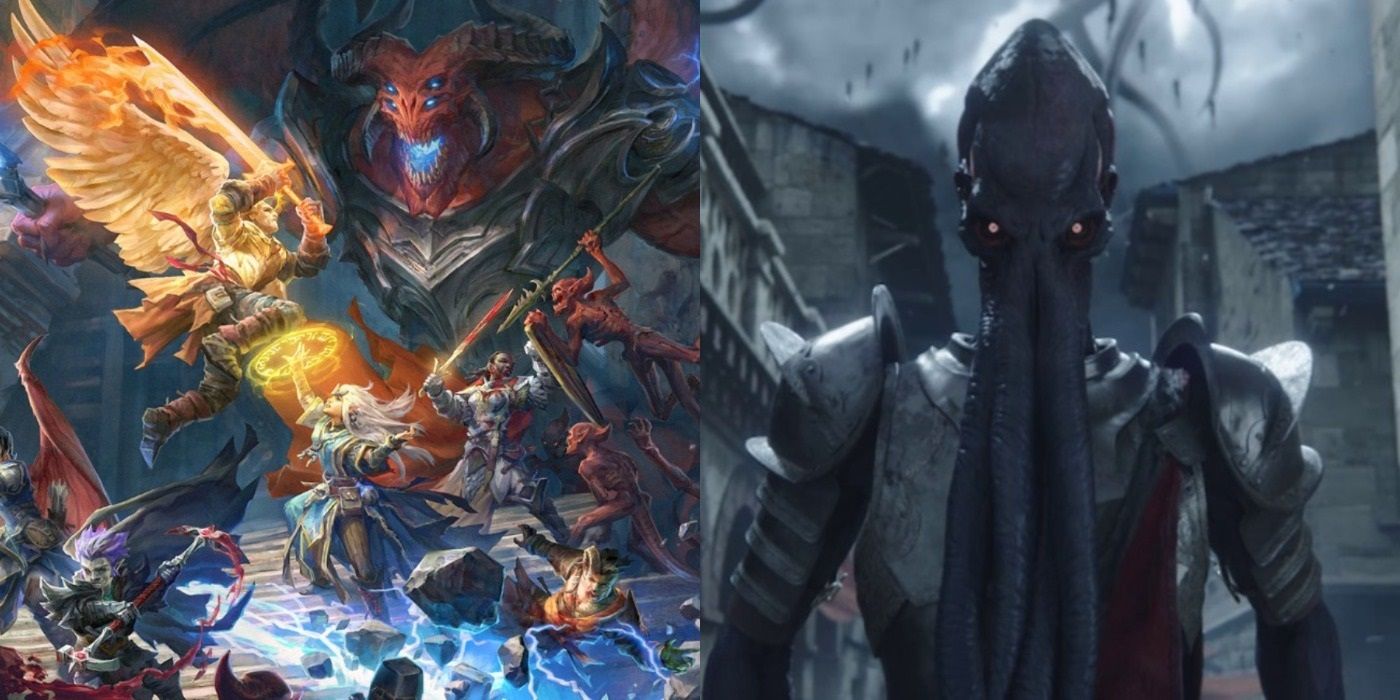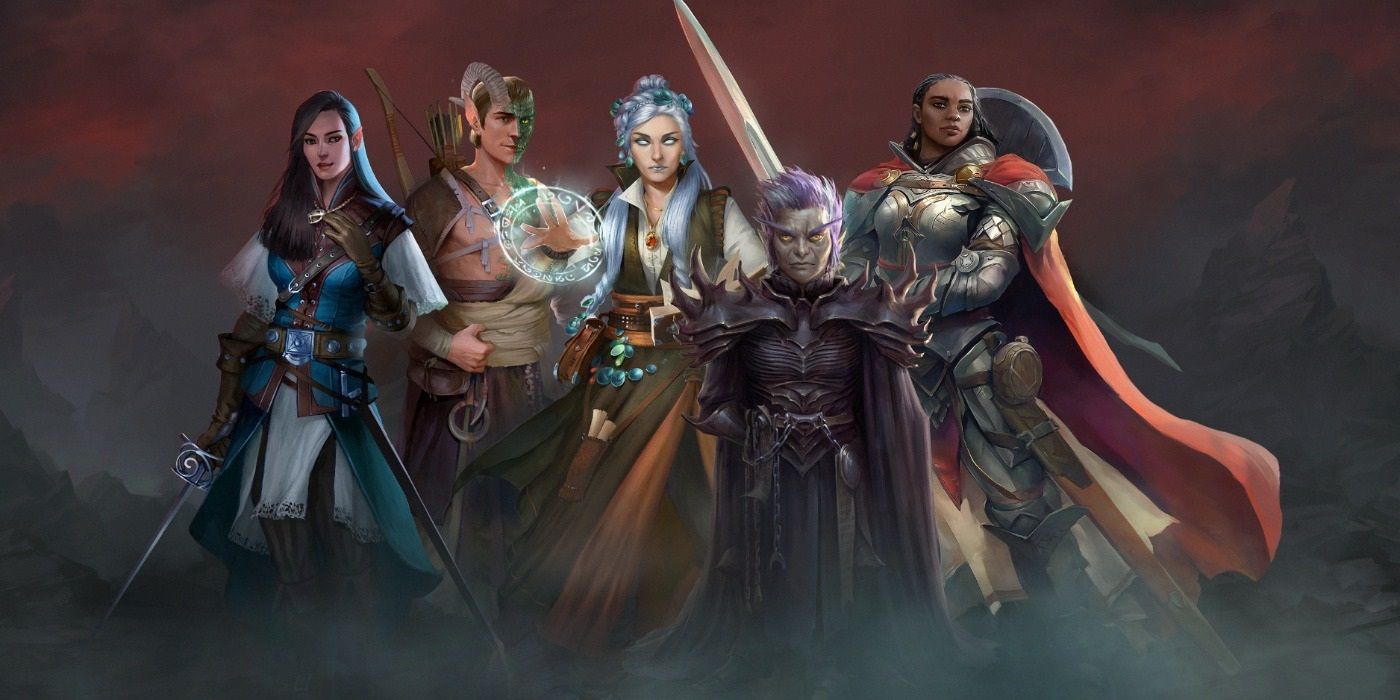
Pathfinder: Wrath of the Righteous has been beating Dungeons & Dragons at its own game, as it emulates the feeling of a tabletop RPG campaign better than any game released since Baldur's Gate 2. The isometric RPG genre laid dormant for years after the release of Neverwinter Nights 2, but it saw a revival in recent times, in the form of games like Pillars of Eternity and Torment: Tides of Numenera.
Wrath of the Righteous isn't the first video game to attempt to emulate the Pathfinder tabletop rules in a video game. Wrath of the Righteous developer Owlcat Games had previously released Pathfinder: Kingmaker. Both Kingmaker and WotR were straight adaptations of the Pathfinder rules and specific official Pathfinder campaigns, but something was lost in translation with Kingmaker. The idea of building a kingdom was a little too ambitious for a first outing, which wasn't helped by the game being too open-world, as it was too easy for the player to lose focus on what they were doing, or wander into an area with high-level monsters that would annihilate the party.
Wrath of the Righteous is a phenomenal game, which is only let down by a number of bugs present at launch. It's a huge step-up from Kingmaker, as its more linear story and segmented progression helps keeps things focused. Pathfinder: Wrath of the Righteous also manages to outdo the recent D&D games in terms of its appeal to tabletop gaming fans.

Baldur's Gate 3 is still in Early Access and has a long way to go before it's ready to be released. The short segment of Baldur's Gate 3 that players have been given access to is fantastic, but it doesn't really feel like D&D. The gameplay in Baldur's Gate 3 is closer to developer Larian Studios' other earlier title, Divinity: Original Sin 2, than it is to the tabletop game. Baldur's Gate 3 feels like a Divinity mod with high production values, rather than a full D&D game.
The other D&D games that have been released in recent years (Dark Alliance, Neverwinter, Idle Champions of the Forgotten Realms) belong to different genres and don't reflect the tabletop experience. The D&D setting is big enough that it can accommodate numerous genres of video games, but there are few games that accurately reflect the tabletop game. The last title that pulled that off was Dungeons & Dragons Tactics on Sony's PSP, which was released back in 2007. Wrath of the Righteous succeeds by being a Pathfinder video game in every sense of the word, while the last D&D game that kept the rules while telling an epic story was Neverwinter Nights 2.
It's unclear why there haven't been more video games that directly translate the D&D rules into a video game, as they're tailor-made for adaptation. Wrath of the Righteous actually feels like playing a Pathfinder campaign, with an epic story that is worthy of a lengthy tabletop adventure. There are more Dungeons & Dragons video games in development, but little has been revealed about them so far. If those want to compete with Pathfinder: Wrath of the Righteous, then they should offer the feeling of the tabletop game, rather than just the aesthetics of the setting.
from ScreenRant - Feed https://ift.tt/2XsRUrF


0 Comments